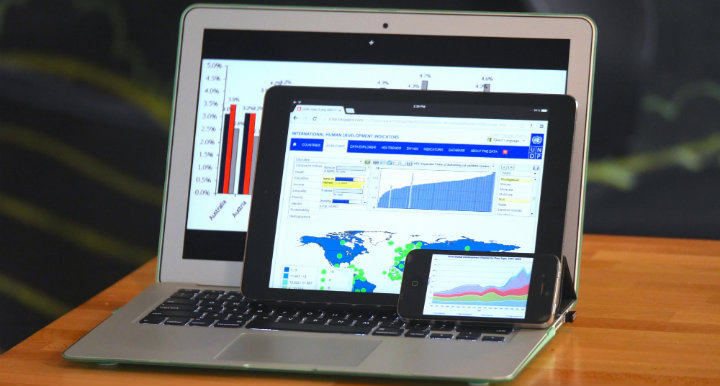
Access to information is key to holding our governments accountable. And to achieve the 17 Sustainable Development Goals (SDGs) during the next 15 years that accountability is indispensable.
At this year’s Africa Open Data Conference in Dar es Salaam, Tanzania, the chief of the data technology section at the U.N.’s Economic Commission for Africa, Dozie Ezigbalike, underscored the importance of providing access to information so people can hold their governments to account.
If a contract is awarded to build a road, Ezigbalike explained, and then five years later no road has been built and the contract is reissued, people need to be able to hold their government to account on the lack of progress. Data, in this case, can facilitate that monitoring and accountability, he said.
“It’s only when the people who are supposed to benefit have access to data that the government will be held accountable, that’s the theory. The practice is that for all these data—open data, big data—to work, it requires a lot of analytic,” he said. “We still have to build the skills and capacity to work with this data, but that should not stop us from embracing the new concepts and technologies.”
To end poverty, measure poverty & progress the right way
Data should be should be the bedrock of the SDGs. Donors, governments, implementers and community members all need to know what we’re doing, where we’re doing it, how we’re doing it and what we’re planning to achieve.
There has been a lot of discussion around the topic of data from the adoption of the Millennium Development Goals (MDGs) in the year 2000 to the launch of the SDGs by the U.N. General Assembly in September.
There has been a buzz about the “data revolution” for a long time, but this year the talk got serious. It is a simple truth that if we want to end poverty, we need to be able to properly measure poverty. We need to collect and make sense of the right and reliable pieces of development data if we hope to meet the targets of the 17 SDGs.
World leaders seem determined to end poverty, protect our planet from degradation and ensure economic, social and technological progress so that all human beings can enjoy prosperous and fulfilling lives. They have committed to fostering peaceful, just and inclusive societies that are free of fear and violence.
To make these visions a reality, we need right and reliable information.
Democratizing data
At the recent Global Goals Community Data Event 2015 at the OpenGov Hub in Washington, D.C., I joined members of the Global Partnership for Sustainable Development Data—a group of policymakers, data scientists, statisticians, application developers and others dedicated to finding solutions to fill SDG data gaps and identifying new or existing data sources, analysis and sharing methods for sustainable development data.
As an action item from the event, my team at Creative Associates International—in collaboration with the Global Partnership on Sustainable Development Data and other partners—is developing the SDG Youth Action Mapper. This tool puts GIS mapping in the hands of youth leaders and organizations globally to help young people map the places and opportunities where they can contribute to fulfilling the 17 SDGs.
From now until Global Youth Service Day in April 2016, our team plans to roll out the SDG Youth Action Mapper in a mobile app so young people can map in real time places where members of the community are taking action on the SDGs and places where others can join in to help.
During the event, I also facilitated a session on “building a government-sustained open data portal.” I drew on lessons from the KnowmoreLIB project, which I supported during my time as iLabLiberia’s Director of Training. The project aims to build an open data platform and ecosystem across the Liberian government and enable citizens to improve the government’s effectiveness and, in the end, quality of life for all Liberians.
To build the type of open data platform we envisioned in a place with a long history of little government accountability, poor IT infrastructure and low levels of “open data” literacy, is extremely challenging.
But it is a challenge we cannot shy away from if we hope to achieve real accountability and measure progress on development.
We can work with citizens, governments and public information officers to help all parties better access, understand and contribute to open data. This open source government portal can empower Liberian citizens to understand and use government services more effectively and improve service delivery.
The data imperative
What is the value of investing in these kinds of activities? Why should we build partnerships and trainings between local governments and innovators to increase data literacy and open data availability?
If we can’t measure it, then how do we know we’re making progress?
Our success in achieving the SDGs hinges on improving the collection of good development data and getting it into the hands of millions of community development practitioners and citizens. The SDGs are touted as goals “for all people,” so all people must be a part of keeping the global community on track.
Luther Jeke is an Atlas Corps Service Fellow on the Technology for Development team at Creative Associates International. Prior to joining Creative, Luther served as the Director of Training at iLab Liberia.

